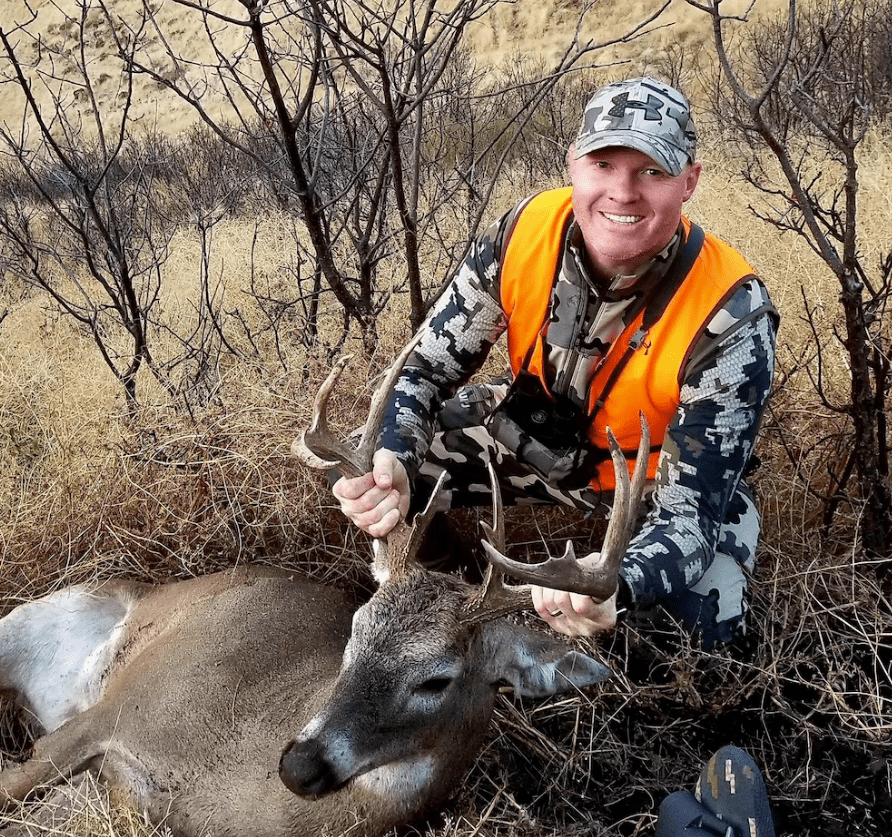
IDFG Commission Limits Nonresident General Elk, Deer Tags; 2021 Sales Begin Dec. 1
THE FOLLOWING IS A PRESS RELEASE FROM THE IDAHO DEPARTMENT OF FISH AND GAME
The Idaho Fish and Game Commission on Nov. 20 approved changes to nonresident participation in general season deer and elk hunts to address concerns from residents about hunter congestion in some areas. Starting 2021, nonresident hunters in most general season elk and deer hunts will be limited to 10 or 15 percent of the total hunters in each elk zone or deer unit based on hunter participation estimates averaged over the last five years.

Statewide quotas for nonresident deer tags (15,500) and elk tags (12,815) have remained the same for nearly 30 years. Although nonresident participation in general deer and elk seasons is limited by these statewide tag quotas, in the past there was no way to manage nonresident participation in each game unit or elk zone, resulting in disproportionally high numbers of nonresident hunters in some areas.

“Hunter crowding is a growing concern among many deer and elk hunters in Idaho. Prior to broader conversations related to the future of deer and elk hunting in Idaho, the Commission thought it important to first ensure that nonresident participation levels were addressed,” Idaho Fish and Game Director Ed Schriever said. “We heard our resident hunters, and took a careful and thoughtful approach to developing this plan to manage nonresident participation in deer and elk hunts at a finer scale.”
Nonresident tag reductions in general hunts will include:
- Elk Zones with A/B tags, and most deer units with regular or whitetail tags where current nonresident participation exceeds 15 percent of total hunters, will be reduced to 15 percent nonresidents.
- Zones and units currently with 10 to 14 percent nonresidents will be reduced to 10 percent nonresidents.
- Zones and units currently with less than 10 percent nonresident participation can not exceed 10 percent.
- Twelve backcountry deer units with low hunter participation will be limited to the current level of nonresidents.
Here is a list of nonresident limits for each individual deer unit for regular deer tags and white-tailed deer tags, and here is a list of nonresident tag limits for elk zones. Here is an interactive map of elk zones and deer units with their respective nonresident tag limits. These limits apply only to general season hunts and do not affect controlled hunts, most of which are already limited to no more than 10 percent nonresidents.
“The zone limits on nonresident elk tags will not only ensure more even distribution of nonresident elk hunters, it will also result in a reduction of over 600 elk tags sold to nonresidents in general elk hunts based on current participation rates,” Schriever said. “Nonresident A tags in some elk zones will be reduced by more than 50 percent.”
Further limiting nonresidents in deer and elk hunting will reduce Fish and Game revenue. In anticipation of that, the Idaho Legislature raised nonresident fees for the first time since 2009, which is expected to offset the decrease in revenue resulting from fewer nonresidents. Here are the updated nonresident fees, effective Dec. 1. There is no effect to resident fees.
“In concert, these actions address localized issues of hunter congestion and allow Fish and Game to maintain existing revenues that are critical to fish and wildlife management, without placing that burden on our resident hunters,” Schriever said. “At the same time, our nonresident prices remain competitive with neighboring states. This was a complex issue that required striking a good balance, and that’s what the Commission has done.”
Here’s what nonresident hunters need to know before tags go on sale
2021 nonresident deer and elk tags will be sold starting at 10 a.m. Mountain Time on Dec. 1, including the popular Sawtooth Elk Zone tags. Nonresidents can expect tags for popular elk zones and deer units to sell out quickly.
There will be separate limits for A and B elk tags, as well as regular and white-tailed deer tags. Nonresident deer hunters will need to know what unit they want to buy a deer tag for, and elk hunters will continue to buy A/B tags for a specific zone, but all zones will have nonresident limits. Tag numbers for current capped elk zones have not changed for residents or nonresidents.
If the statewide quota for nonresident tags is not sold by Aug. 1, remaining tags will be available as second tags for residents or nonresidents, but at nonresident prices.
Regardless of whether the quota of nonresident deer/elk tags have sold out, nonresidents will remain eligible to apply for controlled hunts in the spring.
Fish and Game also recently launched a new licensing system. Hunters are encouraged to review their profile information prior to Dec. 1 to ensure it is accurate.
